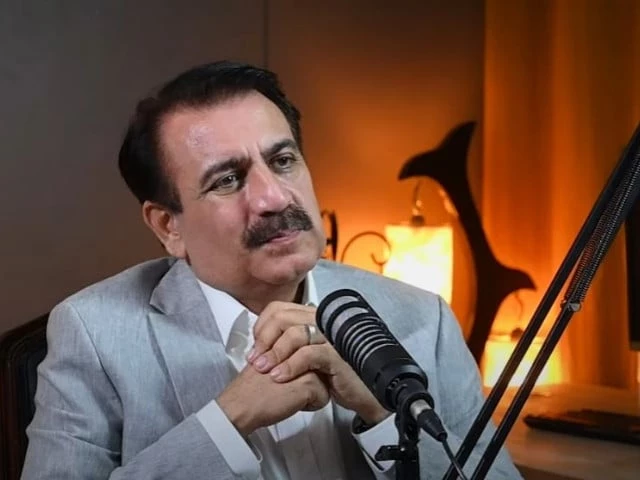Veteran Actor Tauseeq Haider reflects on Gen Z, masculinity and marriage
Appearing on the Ahmed Fozan podcast, actor Tauseeq Haider shares how his views on youth and marriage have evolved

On Monday, Veteran broadcaster Tauseeq Haider sat down with Ahmed Fozan on the Ahmed Fozan Podcast for an open conversation that moved seamlessly between generational divides, gender expectations, and emotional literacy.
From the start, Haider set the tone for a conversation that was neither defensive nor nostalgic. "I don't want to be that old person who has a problem with everything new," he said, making clear that his observations come from curiosity rather than criticism.
Much of the discussion focused on Gen Z. Rather than dismiss the younger generation, Haider expressed admiration for their emotional range and digital literacy. "They make memes, they cry also. They do everything. They are not emotionless." He acknowledged the pressures young people face, including climate anxiety, economic insecurity, and social fragmentation. "The youth today feels very intensely," he said. "They are expressing themselves. They are speaking. They are not just silent."
Haider emphasized that he chooses to learn from Gen Z rather than lecture them. "I have left people my age. I am with Gen Z." He praised platforms like TikTok, not just for entertainment but as sources of education. "From TikTok I am learning astronomy, I am learning history, I am learning about religion." It was a striking departure from common narratives around technology and youth culture, particularly from someone of his generation.
The conversation then turned toward masculinity and emotional repression. Haider spoke of how men are raised to suppress vulnerability. "Men are taught that their emotions don’t matter." He traced the emotional disconnect in many marriages to this early conditioning. "When their wife or partner wants emotional support, they are not able to give it. Because they don’t know how." He did not frame this as a flaw in men’s character but as a systemic failure. "Nobody taught them that emotions are valid."
On the topic of marriage, Haider spoke plainly. "Marriage is not a war. It does not mean one person ruling over another." He advocated for listening, respect, and emotional presence. "You should understand the person. Marriage means understanding." He pushed back against dominant models of control or submission. "Do not impose. Do not dictate. Listen."
Haider also pushed back against the idea that having children is necessary to secure support in old age. “I think this is a strange question,” he said.
“First of all, you are giving birth to a child to support you in old age, so this is a very selfish approach. Second thing is, you are determining that the one who doesn’t have children, their old age will deteriorate. So I can tell you about a lot of people whose old age deteriorated despite having grandchildren.” He emphasized that while children are a great source of joy, they are not the only source. “To attribute children to old age or old age happiness is a very stupid thing. It is true that if you don’t have children, then children are the biggest happiness in life, but it is not the only happiness. So to be happy, you need a lot of blessings from God, which you should be thankful for, and with that happiness you should spend your old age."




















COMMENTS
Comments are moderated and generally will be posted if they are on-topic and not abusive.
For more information, please see our Comments FAQ